Science & Nature
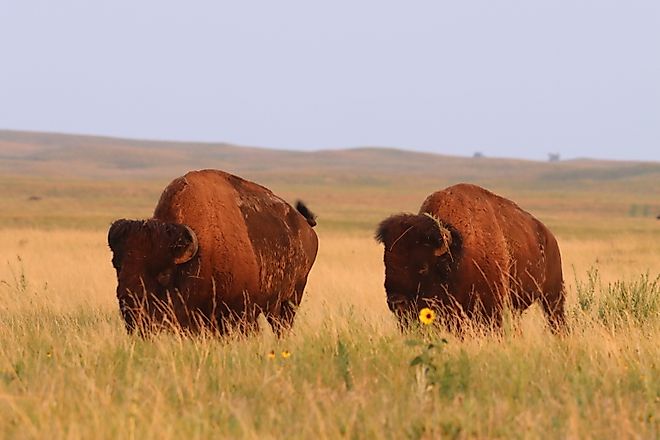
Montana’s Big Sky Icon: The Bison
Discover the history, habitat, and cultural legacy of the American Bison—Montana’s iconic symbol of resilience and the American West.
The Most Snake Infested Lakes in Illinois
Illinois has 40 snake species, many in beautiful lakes. Most are harmless and ecologically important. Some lakes have more snakes.

Alaska’s Great Land Giant: The Moose
The moose, Alaska's great land giant, is one of its biggest threats but also one of its most beloved creatures, and it's not hard to see why.

5 Endangered Animals Fighting For Survival In Rhode Island
Although Rhode Island may be the smallest state in the United States, it still has a vast array of animals, including multiple endangered species.

New York’s Hudson Valley Survivor: The Bald Eagle
Learn more about the bald eagle, how they fought extinction, and why New York’s Hudson Valley is one of the best places to witness them today.

10 Fascinating Facts About Our Solar System
The Solar System showcases paradoxes with a massive star, Kuiperian dwarfs, and complex dynamics, revealing gravitational insights and cosmic mysteries.

The 10 Coldest Countries In The World 2025
The world's coldest countries are spread around the planet but share common geographical characteristics. These are the coldest countries in the world by annual mean temperatures.
The 10 Hottest Countries In The World 2025
The following figures were calculated by taking the collective average of the annual temperatures between 1991 and 2020.
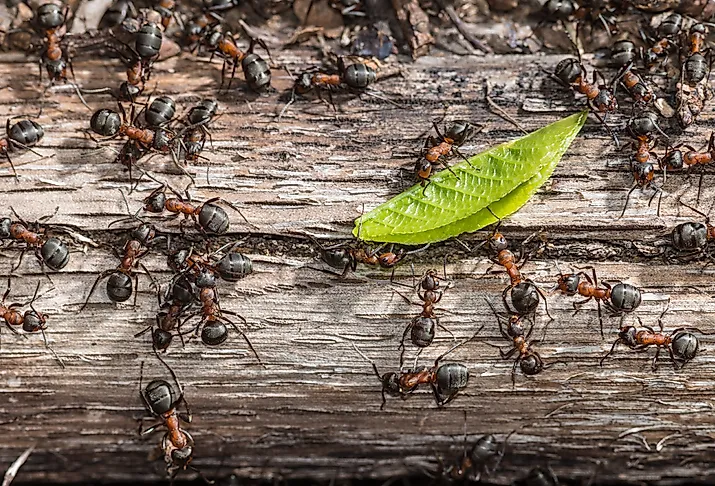
Most Populous Animals On Earth
The web of life on Earth is teeming with myriad creatures, and humans are on the quest to categorize and count all the world's creatures.
The Beetle That Flashes From Gold to Ruby
The golden tortoise beetle is a unique insect that can change its color from shimmering gold to bright red when it is disturbed.
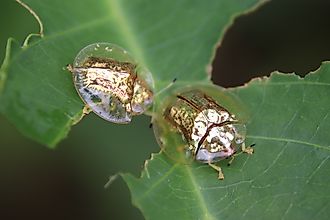

10 Facts About Copperhead Snakes
The Copperhead Snake (Agkistrodon contortrix) is one of the most common snake species in North America.

The Weevil’s Built-In Javelin
Giraffes aren't the only creatures with astonishingly long necks. Meet the giraffe weevil, which can extend its neck by up to three times its body length.

Animals With More Than One Heart
Various animals have different heart structures; some, like octopuses and earthworms, have multiple hearts, while others use alternative systems.
10 Fascinating Facts About Venus
Don't know much about Venus? This article will give you 10 amazing facts about our solar system's hottest planet that you wish you had known sooner.
Ancient Beliefs, Modern Conservation
The institution of the leopard God or Waghoba catalyses wildlife conservation in India, allowing people to share spaces with wild animals with little complaints.
India's Original Eco-Warriors
The Bishnoi community of India are called India's first environmentalists. The Bishnois' dedication to protecting the environment is unparalleled.

Bighorn Sheep
Comprehensive bighorn sheep biology: habitat requirements, social behavior, reproduction, and conservation challenges.
What Is Planetary Protection?
Planetary Protection is a set of precautions that space organizations take to ensure that Earth-life does not contaminate potentially habitable worlds.
What Is The Difference Between A Star And A Planet?
Stars generate energy through nuclear fusion and are luminous, while planets are cooler bodies reflecting light and orbiting stars.
Planets With The Most Moons
As of March 2025, Saturn leads with 274 moons, revealing insights into planetary formation and detection techniques across the Solar System.

How Many Planets Are There In The Solar System?
The IAU in 2006 defined eight planets, leading to Pluto's reclassification as a dwarf planet and differentiating planetary categories.

How Far Is The Moon From Earth?
The average distance of the Moon from Earth is 384,400 km, varying between 363,300 km at perigee and 405,500 km at apogee.

The Fastest Things In The Universe
Explore how cosmic speeds, including light, gravity, and advanced technology influence celestial bodies and human achievements.

Why Is Pluto Not A Planet?
Pluto’s demotion to dwarf planet highlights evolving scientific definitions, driven by new discoveries and criteria established by the IAU.
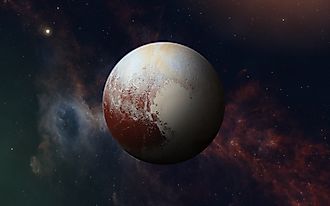
What Is The Farthest Humans Have Traveled In Space?
Humanity’s quest to explore space is marked by milestones like Apollo 13 and Voyager 1, revealing our technological progress.

What Are The 5 Layers Of The Earth's Atmosphere?
The atmosphere of Earth is divided into several different layers. Each layer has its own properties, depending on how far you are from the surface of the planet.
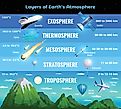
The Venomous Snakes Of Australia
Australia has six common venomous snakes with specific characteristics and habitats and recommended guidelines for safe coexistence that everyone must know.

The Nepali Man On A Dangerous Mission To Save Venomous Snakes
Rohit Giri is educating people to stop killing snakes and saving the lives of both snakes and people with his rescue missions.
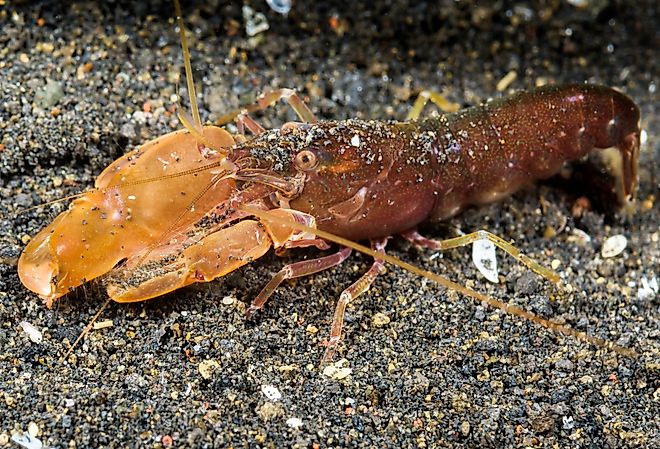
Discover The Shrimp That Fires Sun-Hot Bubbles
The pistol shrimp can create a powerful shockwave, shooting water bubbles at its prey up to a speed of 60 miles per hour and as hot as the Sun's surface.
Where Is The End Of Space?
Humans have a hard time dealing with the fact of how their life is very much finite. You never know the exact expiration date, but you are sure it will happen one day.
World Population By Percentage of Blood Types
It is important to know your blood type as it determines the type of blood you can receive in a blood transfusion after a car accident or some other medical problem.
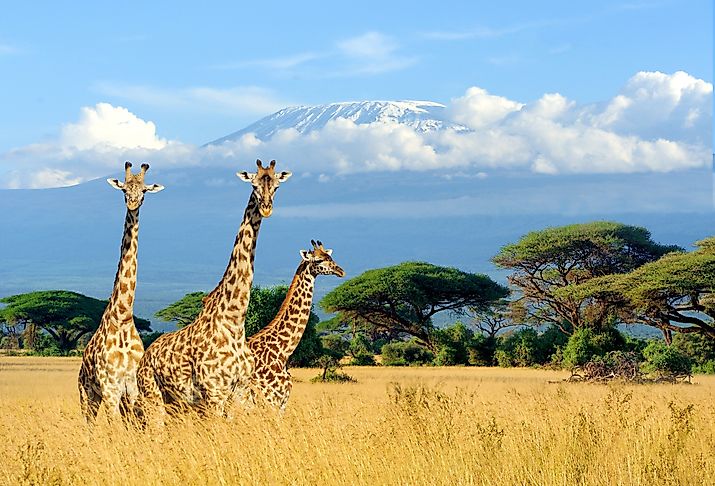
The Long-Neck Truth About Giraffe Bones
Giraffe necks are ‘larger than life.' Their necks have seven vertebrae, the same number as a human neck, but each bone exceeds 25 cm in length.
How Are Igneous Rocks Formed?
Igneous rock is formed when magma, which is liquid molten rock, cools or sets, solidifying into rock and rock formations to form extrusive or intrusive rocks.
The Most Snake Infested Lakes In West Virginia
From timber rattlesnakes coiling on sun-warmed rocks to non-venomous water snakes slithering through lily pads, these bodies of water provide ample habitat.

9 Best Hikes In Maryland
This article explores the best hikes in the state of Maryland, featuring the Appalachian Mountains, Chesapeake Bay, and incredible overlooks.

Fascinating Animals That Live In Mangrove Forests
Mangroves provide habitat for thousands of species—from fish and mollusks to various types of reptiles and birds. Here are some of the most fascinating ones.

The Stray Planet That Escaped Our Solar System
In January 2015, Caltech astronomers revealed research indicating the existence of a large planet with an elongated orbit in the outer solar system.

The Pillars Of Creation
The Pillars Of Creation are one of the most popular star-forming regions in our galaxy, and they have been a regular target for researching star formation.
